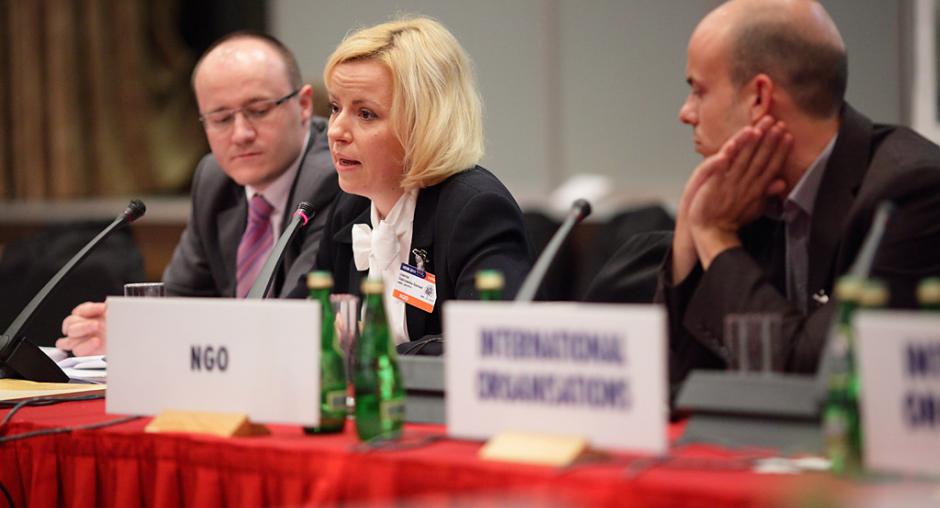Access to justice for victims of trafficking

“Trafficked persons rarely receive compensation, as they often do not have access to information, legal assistance, regular residence status and other help to seek compensation,” Joy Ngozi Ezeilo, the UN Special Rapporteur on Trafficking in Persons, especially Women and Children, said at the OSCE Human Dimension Implementation Meeting, in Warsaw.
“At worst, many trafficked persons are wrongly identified as irregular migrants, detained and deported before they have an opportunity to even consider seeking remedies,” Ezeilo added.
Maria Grazia Giammarinaro, the OSCE Special Representative and Co-ordinator for Combating Trafficking in Human beings, talked about the plight of victims of labour trafficking, telling the meeting participants that any set of measures to help victims would have to include a significant legal component.
“We need to make full use of criminal, labour, administrative and civil tools to uphold the rights of trafficked persons,” Giammarinaro said. “We need to scale up the scope and quality of legal assistance available to trafficked persons in order to support them in effectively claiming their rights, and especially the right to compensation for harm suffered, including payment of unpaid wages.”
A number of participants provided examples where those who had fallen prey to trafficking were targeted, rather than protected, by legal authorities. Joanna Dąbrowska-Samsel, an attorney who has represented victims of trafficking, cited a case where potential victims of human trafficking were not differentiated from the perpetrators.
“Only early and efficient access to specialized legal advice and assistance by a lawyer can provide victims with the opportunity to have their rights protected prior to and during legal proceedings,” she said.
